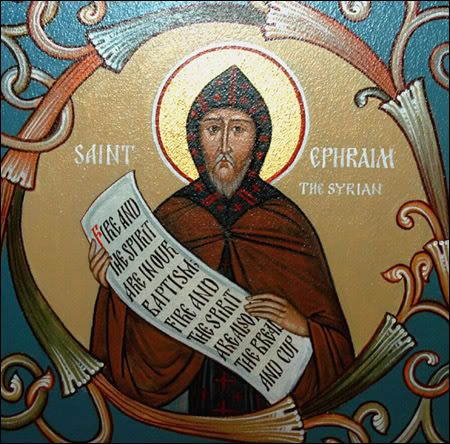
"Lord and Master of my life, drive away from me the spirit of idleness, despondency, ambition and idle talk.
During Great Lent the faithful read this prayer regularly. During the period from Monday to Friday it is pronounced at every church service.
The prayer of St. Ephraim of Syria is read twice. During the first reading, after the words "idle talk," "Thy servant," and "Amen" one must prostrate himself once each time. Then it is necessary to bow at the waist twelve times, saying the prayer "God, cleanse me, a sinner!" Then the prayer is repeated in its entirety, at the end of which one prostration is performed.
This prayer is for us in a way a "memorandum notebook," assistance for our personal Great Lent efforts, aiming to free us from certain spiritual illnesses which deter us from turning to God, destroy our inner being and separate us from our neighbors.
Why perform prostrations? The Church never separated the soul from the body. In falling away, humans turned away from God, and now must be reborn. The body is holy, so holy, that God "became flesh." Salvation and repentance — are not disdain for the body, are not neglect of the body, as some claim, but instead, the reestablishment of the body to its true function — as the church of the Spirit. Christian ascetism — is not a battle against the body, but for it. Therefore the entire person repents — soul and body. Prostrations — are signs of repentance and humility, obedience and homage to God.
OFFSITE: Beginning Orthodoxy, Part 2 - Original article.
But give rather the spirit of chastity, humility, patience and love to Thy servant.
Yea, O Lord and King, grant me to see mine own transgressions and not to judge my brother, for Thou art blessed unto ages of ages. Amen."